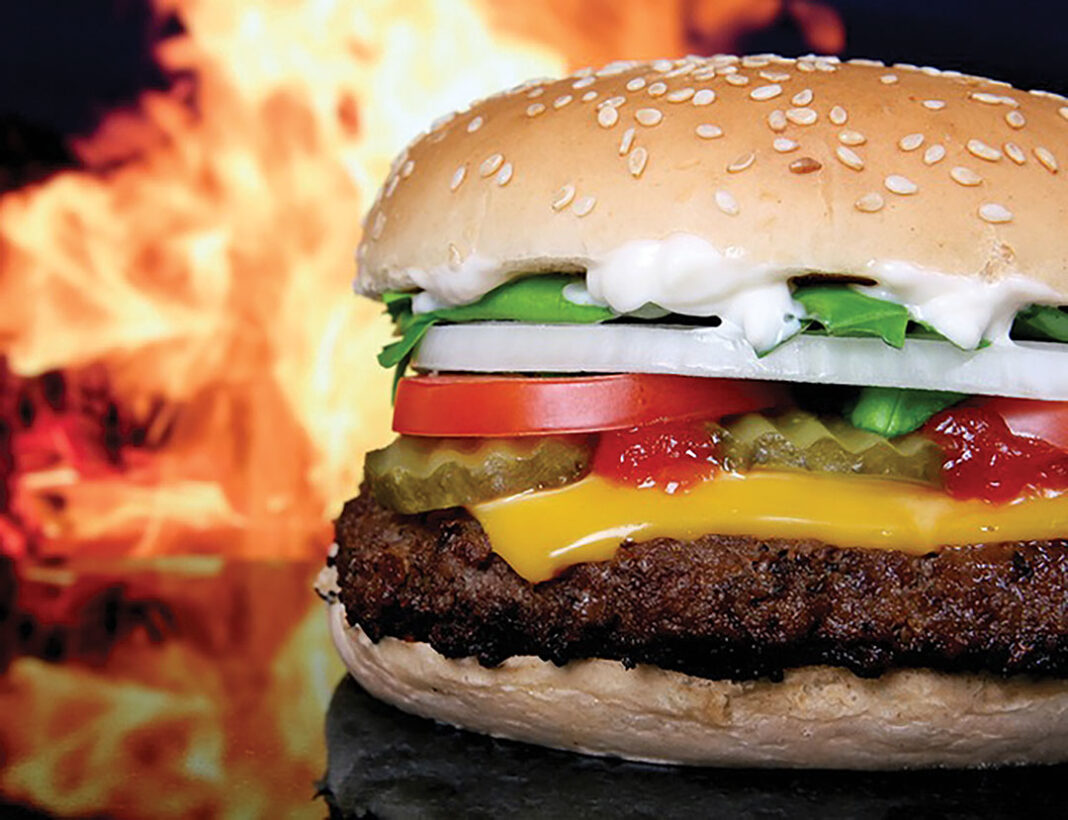
The foods fueling athletes’ desires and not their athletic ambitions
BY: O’NIEL BARRINGTON BLAIR
Meet Kenny Ejim, a basketball player for the Humber Hawks.
Ejim’s been cheating for a while now. He knows he shouldn’t but everything in moderation, right? Whenever he feels the moment is right he can’t keep his hands off a thick, juicy burger. Being an athlete, he must constantly eat foods that will keep him in his prime. He believes it isn’t what you eat, but when you eat that matters.
He’s not alone. Many athletes have cheat days or cheat foods.
“If you are going to cheat, cheat at an appropriate time,” Ejim says.
He says breakfast and before bed are both off limits for cheat meals. He says they should be reserved for midday, so the body has time to process it. Also, never directly after a match or practice.
“So that way it isn’t coming into my system when I really need the energy,” he says.
Ejim eats cheat meals whenever he feels it fits in his schedule and some experts agree that this is how a person should eat.
Jessica Manning is a fitness coach of 16 years. She works for The Change Training, a company trying to revolutionize how people see diet and exercise. This guru of the body wasn’t always the athletic nutritionist her clients have grown to know and love. Back in high school Manning worked at an ice cream shop and began packing on the pounds. She ate unhealthily without exercise and her body and self-esteem suffered for it. Her breaking point was realizing she didn’t want to live like this, she was sick of being sluggish and tired.
“I was craving the real taste of food,” she says.
Manning picked up a couple of nutrition books and her life changed forever. She began eating better and put her health first. She believes a cheat day can be a good thing for a dieting person’s mental health.
“Indulging once a week in something not healthy is a good thing,” Manning says.
She says it can keep morale up to help people from feeling deprived. Personally, she likes to indulge in thin-crust pizza with arugula.
Not everyone agrees with Manning though. Cameron Vanderschaaf is a devout vegan who grew up on a farm. This rural life caused him to always be conscious of what he put into his body. He has studied kinesiology and after watching videos on veganism two years ago, he has been one ever since. He believes in the health benefits of nuts and seeds such as chia or flax seeds. He feels seeds and nuts can be added to anything.
“This morning I had buckwheat pancakes with fruit,” he says.
Vanderschaaf isn’t a fan of cheat days. He believes in eating the right foods and getting all the nutrients you need. He loves fortified milks (with the exclusion of cow sourced) such as almond or hemp milk.
“Once you’re on a good diet, you won’t crave garbage,” Vanderschaaf says.
Despite this he enjoys the occasional vegan cookie or cake. A super food he believes should be on all athlete’s radar are dates. They can be blended in a smoothie and provide energy.
Yuseph Jackman, is a player for George Brown’s Huskies volleyball team. He says he tries to limit sizes of meals, instead of three big meals he opts for five smaller meals.
“I try to limit the portions I eat because I find when I’m too dense, it doesn’t feel right on the court,” Jackman says.
However, Jackman like most people still has a vice. His personal food of choice when he is having a cheat meal is all kinds of Chinese food. His favorite being all kinds of Chow Mein and sometimes General Tao’s chicken.
Matthew Krok, who also plays for George Brown’s Huskies volleyball team, is another player says he thinks there is a time for treats but during the game season isn’t it. Krok doesn’t limit his eating portions but says he tries to stick to a high carb diet.
“During season I try to keep it healthy,” Krok says.
When he’s not in a sports season he likes to eat the occasional sweet treat including brownies, doughnuts and chocolate.
Another person not too keen on cheat days, but sees the value they have is Kimberly Stroesser, a certified athletic therapist for seven years and a kinesiologist for 10. She took her first nutrition course during her undergrad. She has been a vegetarian for 12 years. She says she believes people need to make lifestyle decisions, not just diet.
“I don’t like diets, but if you are on one, cheat days are both inevitable and important. I think moderation is key. You can’t eat 100 per cent perfect 100 per cent of the time,” she says. Personally, she loves indulging her sweet tooth with dark chocolate.
She says more importantly people and athletes need to eat properly. Both Stroesser and Manning agreed that people need to make sure they are getting both their macro and micro nutrients.
“I always recommend to the student athletes to get a good balanced diet and try to avoid foods with a lot of preservatives and additives,” Stroesser says. “Lots of fruits and veggies, adequate amount of protein and carbs for their activity level and more of the good fats like you get from avocados, egg yolks, and nuts.”

